In early 2007, David Finkel, a Pulitzer prize-winning writer with the Washington Post, was writing an article about then-Lt. Col. Ralph Kauzlarich's 2nd Battalion, 16th Infantry Regiment when Kauzlarich pitched the idea for Finkel to do a mid-tour and after-tour article on his unit's upcoming deployment.
Finkel did him one better by writing a book, "The Good Soldiers," about 2-16 Inf.'s 15-month deployment during the U.S. surge into Baghdad, a book that went on to be a New York Times best-seller and receive the J. Anthony Lukas Book Prize and the New York Public Library Helen Bernstein Award for Excellence in Journalism.
More than four years after that fateful suggestion, Finkel and now-Col. Ralph Kauzlarich, the Deputy Chief of Staff for Effects with the 1st Infantry Division, held a lecture about the book on the campus of Kansas State University March 10.
Finkel said over the course of the eight months he was embedded with the 2-16 Inf. 'Rangers' in eastern Baghdad, he maintained his objectivity, but that does not mean he was emotionless in his interactions with the Soldiers.
"I was thoroughly frightened while I was over there," Finkel said. "I was also honored; I like talking about these guys."
Kauzlarich, who has since served another Iraq deployment, expressed gratitude to the writer for his objectivity, his fairness and for simply telling his battalion's story.
"The greatest quality of the book, in my opinion, is that it tells the Rangers' story so they don't have to," Kauzlarich said.
Kauzlarich added that his most recent deployment showed him the sacrifices his Soldiers made that are documented in the book were not in vain, citing the democratically-elected parliament in Iraq, the improving Iraqi Security Forces, and the nation's relatively strong economy.
Finkel summed up his experience with 2-16 Inf. succinctly during his closing remarks.
"The title of the book is not ironic," he said. "They were good Soldiers when they left; they were good Soldiers when they got back."
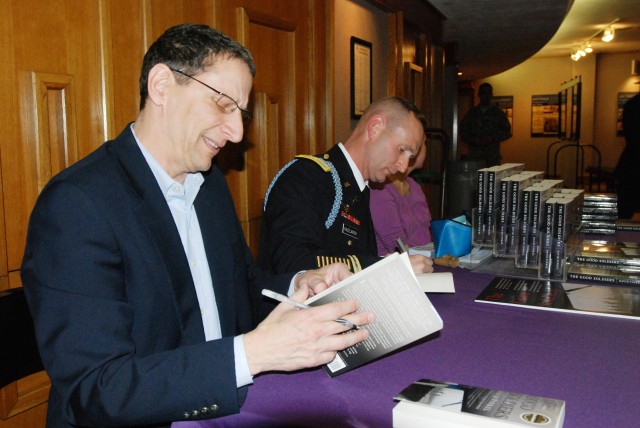
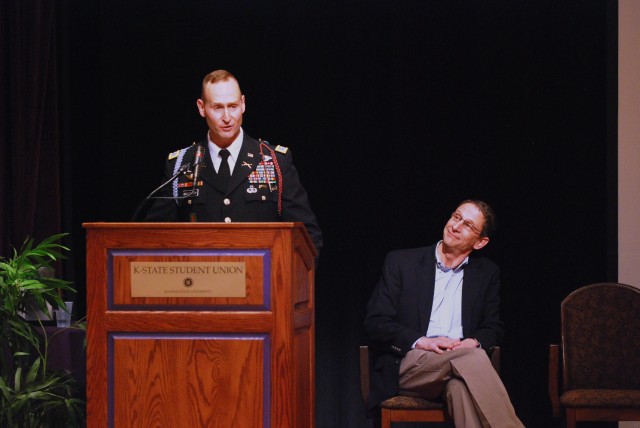
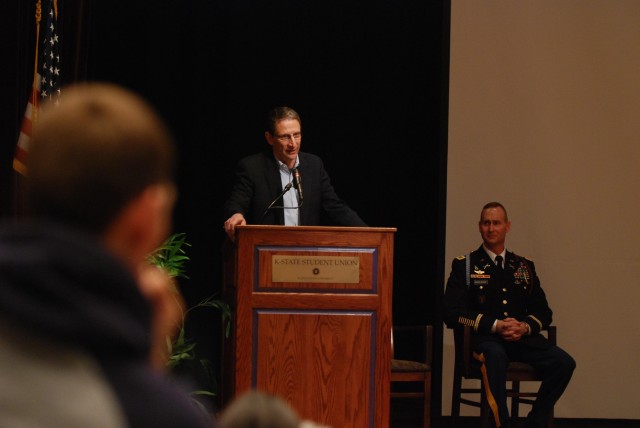
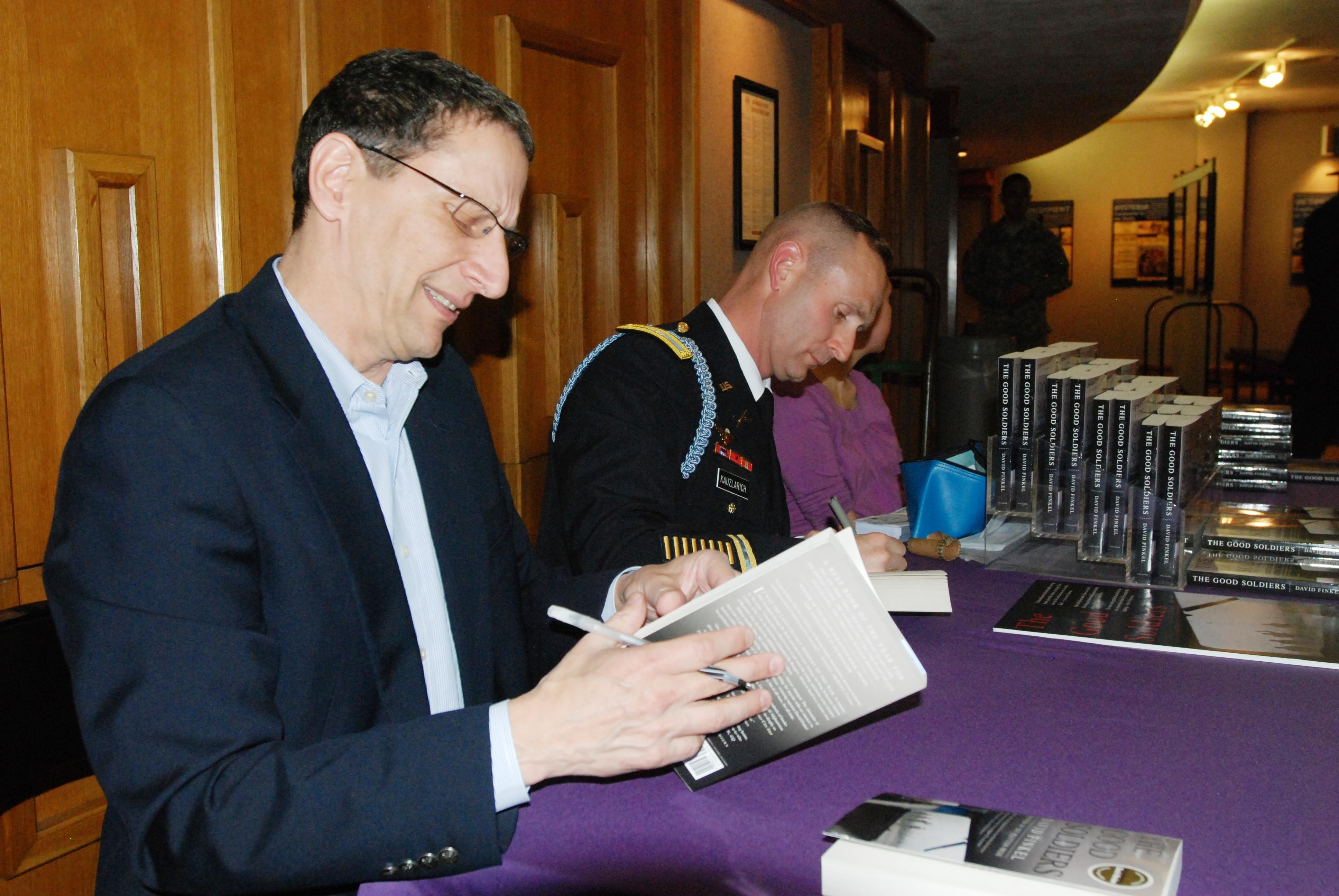
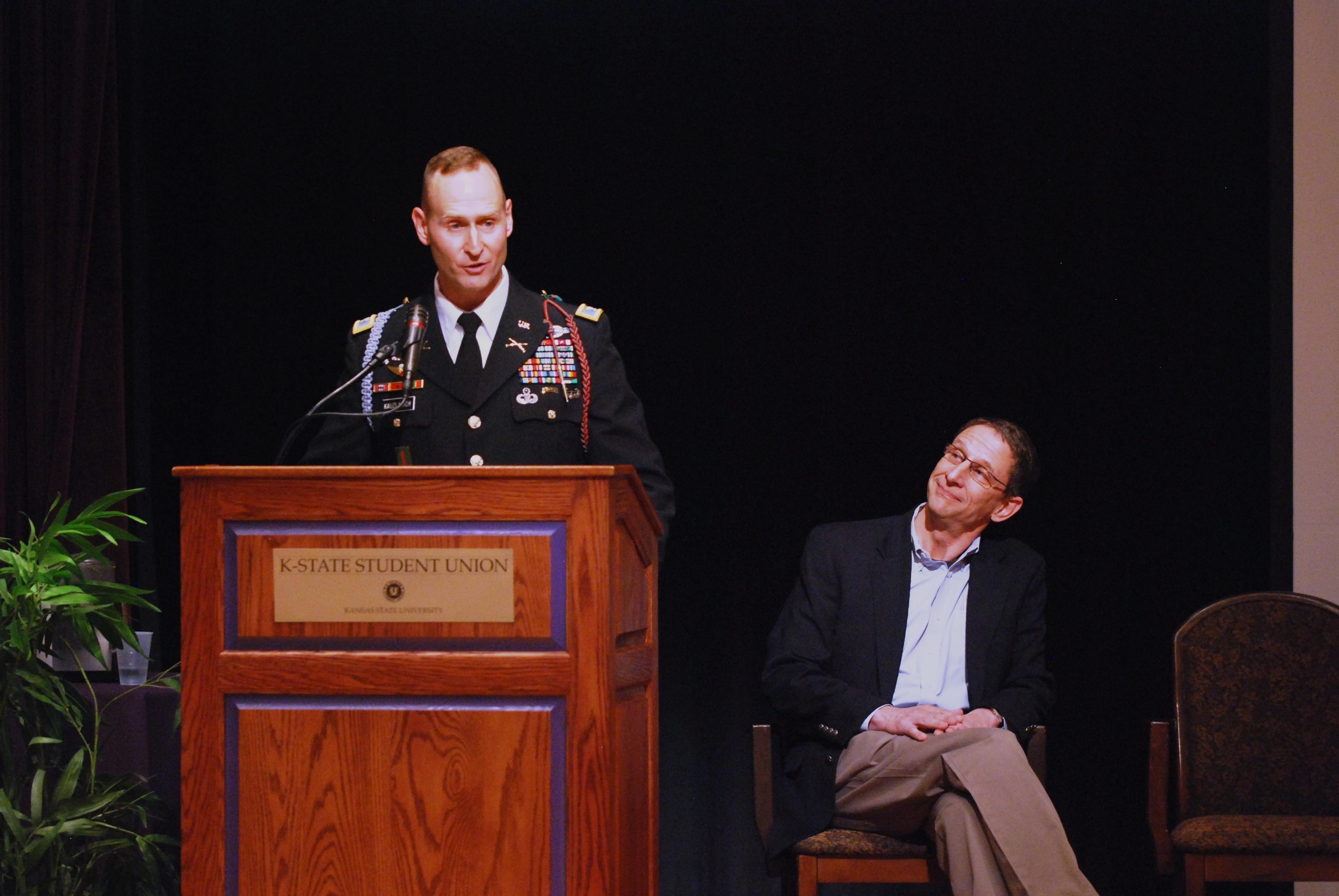
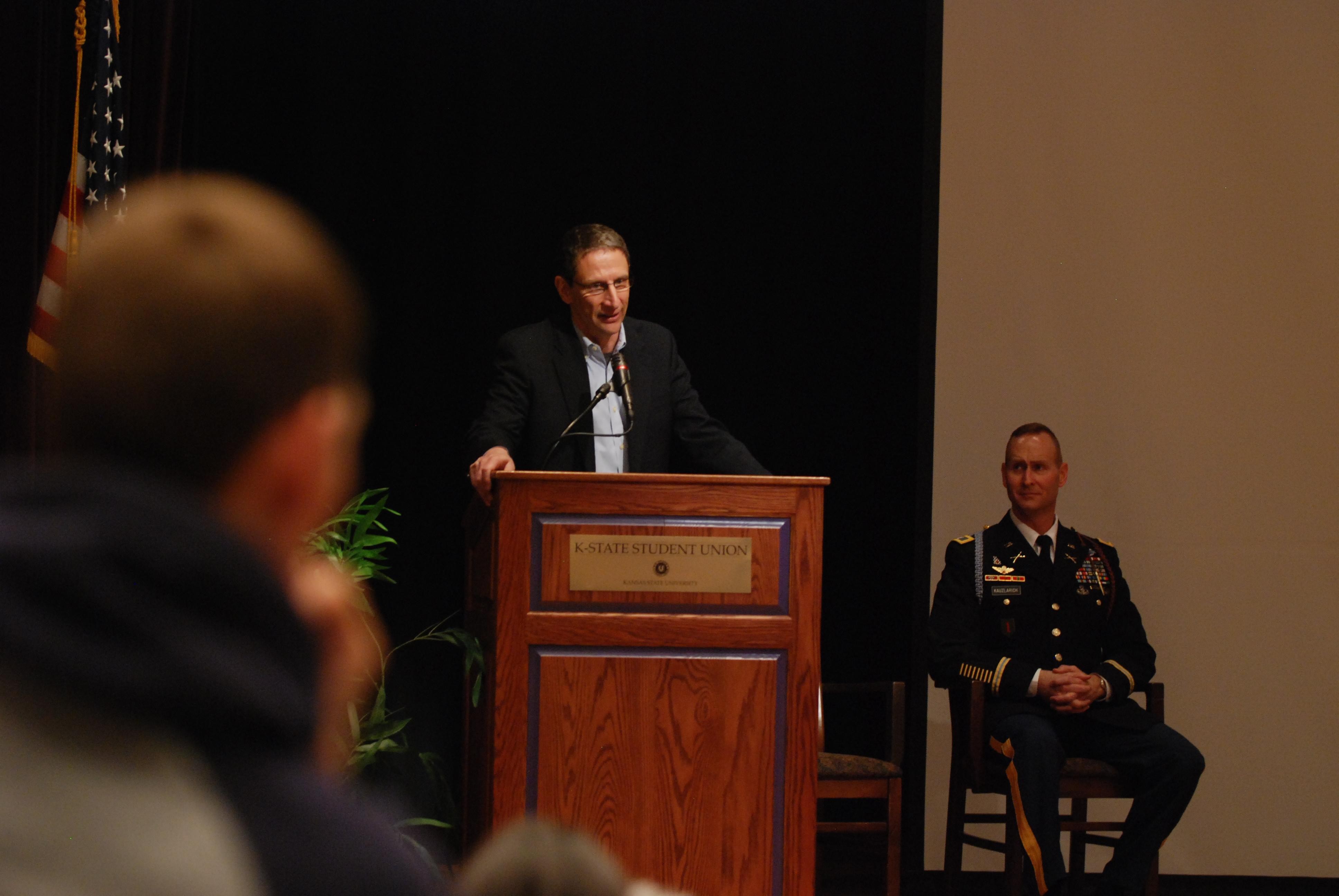
Social Sharing